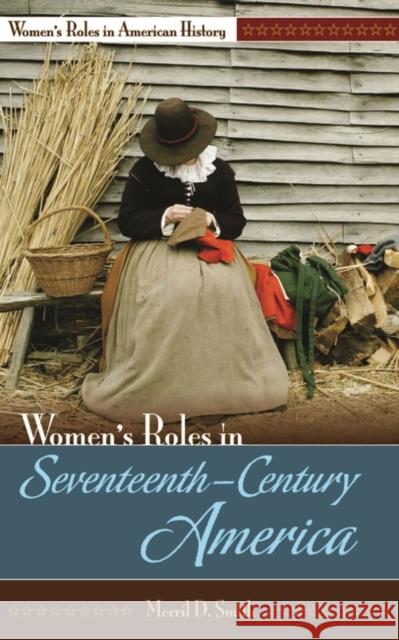Women's Roles in Seventeenth-Century America » książka
Women's Roles in Seventeenth-Century America
ISBN-13: 9780313339769 / Angielski / Twarda / 2008 / 216 str.
In Colonial America, the lives of white immigrant, black slave, and American Indian women intersected. Economic, religious, social, and political forces all combined to induce and promote European colonization and the growth of slavery and the slave trade during this period. This volume provides the essential overview of American women's lives in the seventeenth century, as the dominant European settlers established their patriarchy. Women were essential to the existence of a new patriarchal society, most importantly because they were necessary for its reproduction. In addition to their roles as wives and mothers, Colonial women took care of the house and household by cooking, preserving food, sewing, spinning, tending gardens, taking care of sick or injured members of the household, and many other tasks. Students and general readers will learn about women's roles in the family, women and the law, women and immigration, women's work, women and religion, women and war, and women and education. literature, and recreation.
The narrative chapters in this volume focus on women, particularly white women, within the eastern region of the current United States, the site of the first colonies. Chapter 1 discusses women's roles within the family and household and how women's experiences in the various colonies differed. Chapter 2 considers women and the law and roles in courts and as victims of crime. Chapter 3 looks at women and immigration--those who came with families or as servants or slaves. Women's work is the subject of Chapter 4. The focus is work within the home, preparing food, sewing, taking care of children, and making household goods, or as businesswomen or midwives. Women and religion are discussed in Chapter 5. Chapter 6 examines women's role in war. Women's education is one focus of Chapter 7. Few Colonial women could read but most women did receive an education in the arts of housewifery. Chapter 7 also looks at women's contributions to literature and their leisure time. Few women were free to pursue literary endeavors, but many expressed their creativity through handiwork. A chronology, selected bibliography, and historical illustrations accompany the text.











